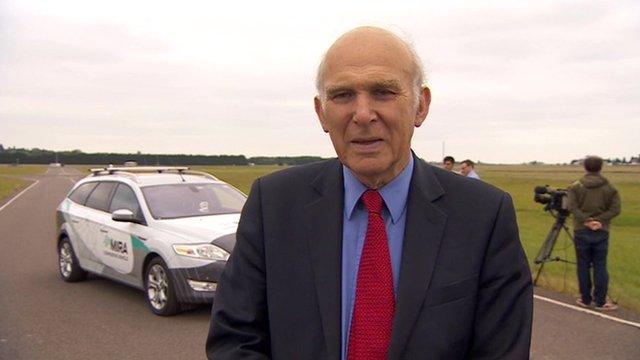Self-driving lorries 'to get UK test in 2015'
- Published
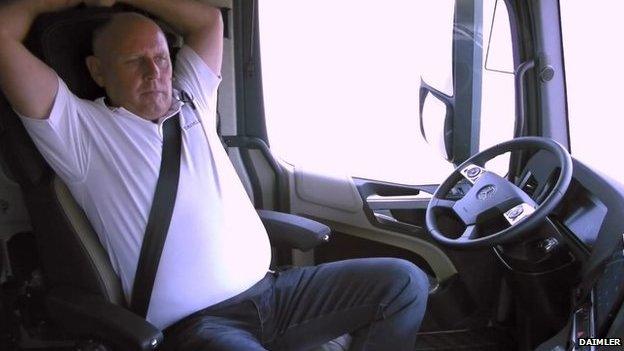
Autonomous driving technology has been tested on European roads
Fleets of self-driving lorries could be tested on UK roads as soon as next year, according to reports.
The technology allows a convoy of lorries to travel just a few feet from each other, with just the driver at the front in control.
The initiative would cut fuel consumption, backers said.
However, the plan has been criticised by motoring groups which said such a fleet would be "intimidating" to other road users.
The Sunday Times, external reported that UK ministers had visited Sweden to see the technology in action, and that tests would be carried out next year.
However in a statement, the Department for Transport said: "No decision has been reached on a trial using this new technology.
"However, road safety remains of paramount importance and will not be compromised."
High-speed lunch
The technology still requires a driver to be in each vehicle in the event of an emergency, but for the most part drivers will be able to relax - the proposal suggested reading a book or having lunch.
The convoy will be controlled by the driver in the front, with each lorry communicating via wi-fi. Infrared cameras and laser sensors are also used to monitor vehicle movements.
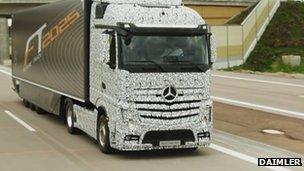
Several companies are investing in autonomous driving research, including Mercedes-Benz
Paul Watters, head of road policy for breakdown rescue service the AA, said the idea may concern normal road users.
"For the car user in particular it does pose worries about platooning lorries taking up a lot of space and blocking others out," he told the BBC, but added that perhaps a dedicated lane may solve that issue.
He questioned whether the notion that drivers could take up another activity while in the autonomous convoy was misjudged.
"They're suggesting that an autonomous lorry driver can do other logistics work while they're driving," he said.
"The thought of a lorry driver doing administration is, dare I say it, pie in the sky."
The plans follow the announcement that driverless cars will be tested in the UK next year. The news was met with some trepidation - 65% of people polled by the AA, external said they would prefer to continue driving as normal rather than allow a computer to take the wheel.
But the organisation noted that younger drivers appeared to be more open to the technology.
Follow Dave Lee on Twitter @DaveLeeBBC, external
- Published30 July 2014
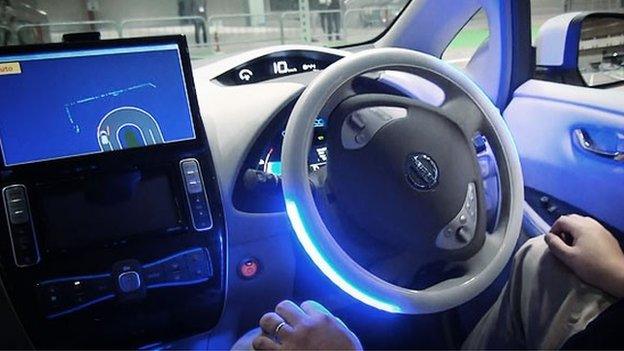
- Published30 July 2014
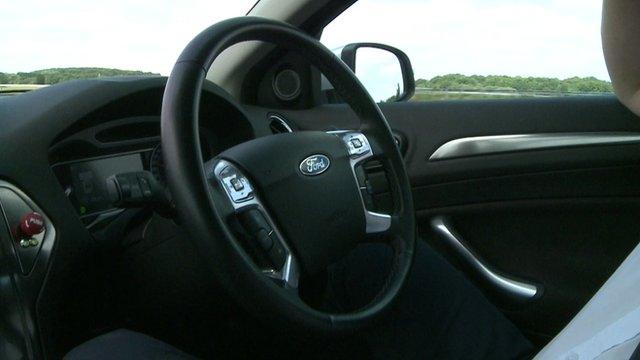
- Published30 July 2014
